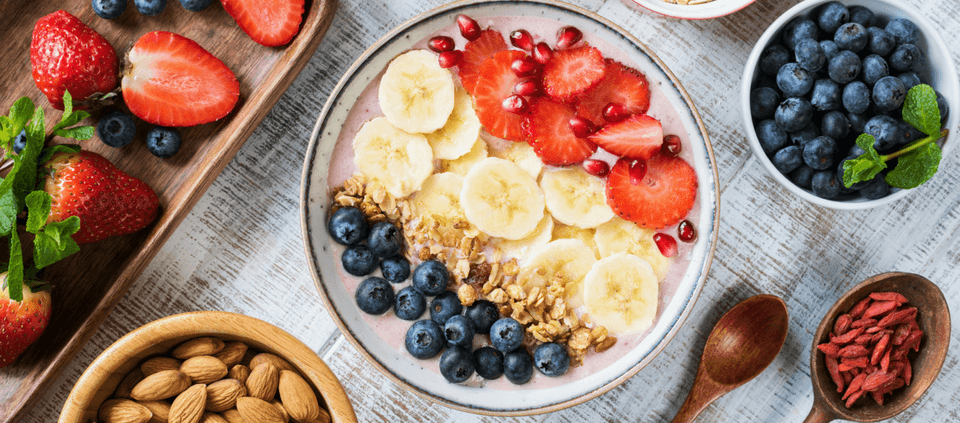
Achieving optimal health and fitness is a goal shared by many individuals seeking to enhance their overall well-being and quality of life. While exercise plays a crucial role in physical fitness, it is equally important to adopt a healthy diet that supports the body’s nutritional needs. A well-balanced and nourishing diet provides the essential nutrients, vitamins, and minerals necessary for optimal functioning of the body, boosts energy levels, supports muscle growth and repair, and enhances overall performance.
Building a healthy diet requires a mindful approach that emphasizes the consumption of whole, unprocessed foods while minimizing the intake of processed and sugary items. This includes incorporating a variety of fruits, vegetables, lean proteins, whole grains, and healthy fats into daily meals. Portion control and moderation also play significant roles in maintaining a healthy diet. Additionally, staying adequately hydrated is essential for proper bodily functions and overall health. By prioritizing nutrition and making conscious food choices, individuals can lay the foundation for optimal health and fitness, promoting longevity, vitality, and a higher quality of life.
Healthy Diet for Optimal Health

Maintaining a healthy diet is essential for optimal health and fitness. Here are some general guidelines to follow when it comes to your diet:
- Balanced Macronutrients: Include a balance of carbohydrates, protein, and healthy fats in your meals. Carbohydrates provide energy, so choose whole grains, fruits, and vegetables. Include lean sources of protein like chicken, fish, tofu, beans, and legumes. Incorporate healthy fats from sources like avocados, nuts, seeds, and olive oil.
- Portion Control: Pay attention to portion sizes to avoid overeating. It’s important to consume the appropriate amount of calories for your activity level and goals. Consider using measuring cups, a food scale, or visual cues to estimate portion sizes.
- Plenty of Fruits and Vegetables: Include a variety of colorful fruits and vegetables in your diet. They are rich in vitamins, minerals, antioxidants, and fiber, which are essential for overall health. Aim for at least five servings per day.
- Hydration: Drink plenty of water throughout the day to stay hydrated. Water supports digestion, nutrient absorption, and overall bodily functions. Limit sugary drinks and opt for water, herbal tea, or infused water instead.
- Whole Foods: Focus on whole, unprocessed foods as the basis of your diet. These include whole grains, lean proteins, fruits, vegetables, and legumes. They provide a wide range of nutrients and are generally lower in added sugars, sodium, and unhealthy fats.
- Reduce Added Sugars and Saturated Fats: Limit your intake of foods high in added sugars, such as sugary drinks, candies, pastries, and processed snacks. Similarly, reduce your consumption of saturated and trans fats found in fried foods, fatty meats, and processed snacks. Instead, choose healthier alternatives like fresh fruits, nuts, and lean proteins.
- Regular Meal Patterns: Establish regular eating patterns and try to avoid skipping meals. Aim for three balanced meals per day, with healthy snacks if needed. This can help maintain stable blood sugar levels and provide sustained energy throughout the day.
- Mindful Eating: Pay attention to your body’s hunger and fullness cues. Eat slowly and mindfully, savoring each bite. This can help prevent overeating and promote better digestion.
- Moderate Alcohol Consumption: If you choose to drink alcohol, do so in moderation. Moderate alcohol intake is generally defined as up to one drink per day for women and up to two drinks per day for men.
- Personalize Your Diet: Remember that everyone’s dietary needs and preferences are unique. Consider any specific dietary restrictions, allergies, or sensitivities you may have. If necessary, consult with a registered dietitian or nutritionist to create a personalized plan that suits your individual needs and goals.
In addition to a healthy diet, regular physical activity and sufficient sleep are also crucial for optimal health and fitness. It’s important to adopt a holistic approach that combines a balanced diet with an active lifestyle for overall well-being.
Best Food for Fitness

When it comes to fitness, it’s important to consume a well-rounded diet that provides the necessary nutrients to support your physical activity and overall health. Here are some foods that are commonly considered beneficial for fitness:
- Lean Proteins: Protein is essential for muscle repair and growth. Include lean sources of protein such as chicken breast, turkey, fish, tofu, Greek yogurt, eggs, and legumes.
- Whole Grains: Whole grains provide complex carbohydrates, which are a great source of sustained energy. Opt for whole wheat bread, brown rice, quinoa, oats, and whole grain pasta.
- Fruits and Vegetables: These are rich in vitamins, minerals, antioxidants, and fiber. They help support overall health and provide important nutrients for recovery and performance. Include a variety of colorful fruits and vegetables in your diet.
- Nuts and Seeds: These are packed with healthy fats, protein, and fiber. They can provide sustained energy and help with post-workout recovery. Include almonds, walnuts, chia seeds, flaxseeds, and pumpkin seeds.
- Greek Yogurt: Greek yogurt is an excellent source of protein, calcium, and probiotics. It can be a great option for post-workout recovery or as a healthy snack.
- Healthy Fats: Include sources of healthy fats such as avocados, olive oil, nuts, and seeds. These provide energy and support overall health.
- Hydration: Proper hydration is crucial for fitness. Water should be your primary choice, but you can also include coconut water or natural electrolyte drinks during intense workouts.
- Eggs: Eggs are a nutrient-dense food that provides high-quality protein, vitamins, and minerals. They can be a versatile option for any meal of the day.
- Quinoa: Quinoa is a complete protein source and a great alternative to rice or pasta. It also contains fiber and essential minerals like magnesium and iron.
- Berries: Berries are packed with antioxidants, fiber, and vitamins. They can provide a natural source of sweetness while adding important nutrients to your diet.
Remember, it’s important to personalize your diet based on your specific needs, goals, and dietary restrictions. Consulting with a registered dietitian or nutritionist can help you create a personalized meal plan tailored to your fitness goals.
Conclusion
In conclusion, maintaining a healthy diet is crucial for optimal health and fitness. A balanced diet that includes lean proteins, whole grains, fruits, vegetables, healthy fats, and adequate hydration is key. These foods provide the necessary nutrients to support physical activity, muscle repair, and overall well-being.
It’s important to prioritize whole, unprocessed foods while minimizing the consumption of added sugars, saturated fats, and processed snacks. Personalizing your diet based on your individual needs, preferences, and dietary restrictions is also essential.
Remember that a healthy diet should be complemented by regular physical activity and sufficient sleep for a holistic approach to fitness. By adopting these lifestyle habits, you can optimize your health, fitness, and overall well-being. If needed, consult with a healthcare professional or registered dietitian to create a personalized plan that suits your specific goals and requirements.
